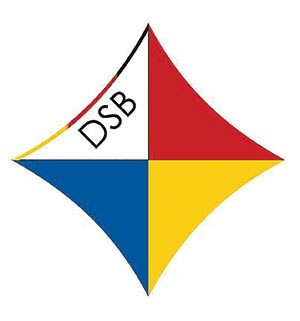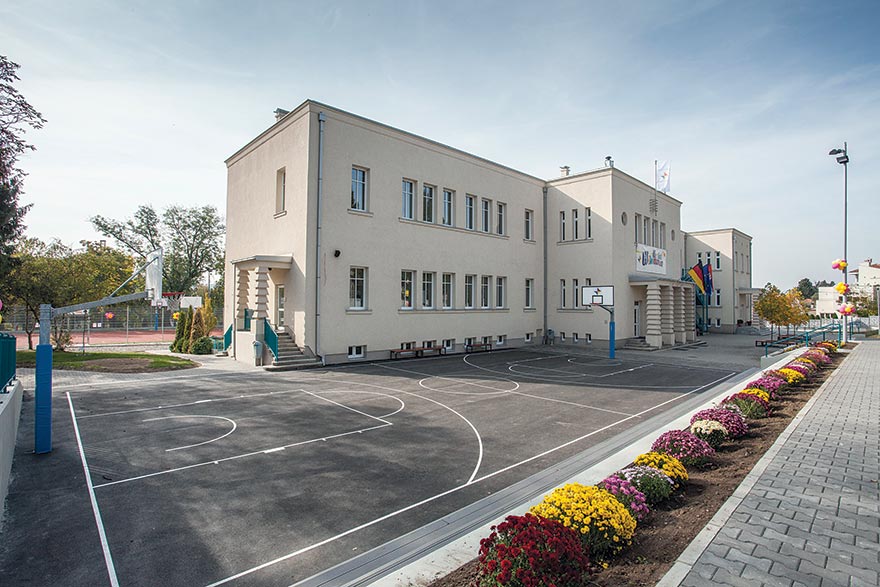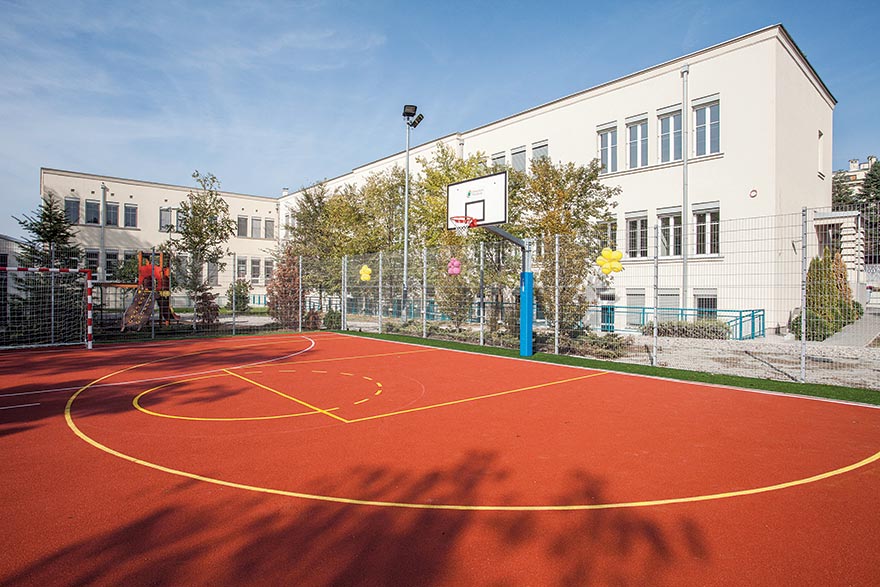Since 1864, when the German School in Belgrade was first established, many parents have entrusted their children to the hands of its staff and educators, confident that their children would be challenged by an academic education that would open them up to unlimited opportunities in any field of science, economy or even craftsmanship
Interest in a German education remains unabated today, allowing graduates to gain access to universities all over the world and promising that students are invited and taught not only to reproduce knowledge but also to question any given content, to think critically and to create an individual perspective. The “Deutsche Schule Belgrad” (DSB – German School of Belgrade) feels bound to the general principles of German education and has more to offer, as we discovered when conversing with the new headmaster, Mr Ralf Naeve, and head of the school board, Mr Christoph Czettl.
Why should parents opt for DSB?
 C.C: The German School of Belgrade offers a perfect mix of tradition and well-established educational goals, with the courage of modernisation. We try to use the best of the experience amassed by our German colleagues, coming from all over Germany, and to combine it with the knowhow of Serbian teachers. If we wanted to describe it in stereotypes, one could say that we have the opportunity to fuse German orderliness with Serbian passion – and this seems to be a perfect match for learning and for life.
C.C: The German School of Belgrade offers a perfect mix of tradition and well-established educational goals, with the courage of modernisation. We try to use the best of the experience amassed by our German colleagues, coming from all over Germany, and to combine it with the knowhow of Serbian teachers. If we wanted to describe it in stereotypes, one could say that we have the opportunity to fuse German orderliness with Serbian passion – and this seems to be a perfect match for learning and for life.
R.N: And let me add that this can be convincing at the rational level, but we are a small school and with our approach, we try to convince the parents and students that every single person is important to our school community and we care! We know many of our students from kindergarten to graduation and are therefore able to accompany and support them in a very individual way.
How do parents react to your approach?
R.N: First of all, families are interested in the German language, the German culture and the German school-leaver certificate, which enables entrance into any university in Europe. German families that are not resident in Serbia permanently want to ensure an easy transition from German schools and back.
Besides our lessons and our extracurricular activities, we promote a sense of responsibility, intercultural exchange, democratic values and an awareness of acting and thinking in a sustainable way
But more and more parents seem to value our conviction that learning is based on good relationships. They treasure our smaller classes and opportunities to promote individually. And, of course, the reputation of high requirements is still present.
Who enrols in the German school?
C.C: We have families from all over the world. There are families from Germany, Austria or Switzerland – often related to embassies or companies doing business in Serbia. There are also Serbian families with a close connection to Germany. Often at least one of the parents was raised in a German-speaking country.

Additionally, there are a lot of families from all over the world that trust the German education system. And, of course, there are many Serbian families who enrol their children in the German kindergarten and German School in order to learn German and graduate with the opportunity to attend any European University.
You were talking about tradition and well-established educational goals – besides Goethe, Schiller etc., what more do students learn?
R.N.: German Curricula are not only marked by traditional knowledge. In any subject, in any situation at school, we want to offer opportunities to learn for life, to overcome individual boundaries and to find out about individual talents. Besides our lessons and our extracurricular activities, we promote a sense of responsibility, intercultural exchange, democratic values and an awareness of acting and thinking in a sustainable way.
What are the prospects of the DSB?
C.C.: We feel that we have a great baseline. Our building has been “recently” reconstructed. Our school board has worked intensively to set up a strategy for the future. The Administration is continuously optimising processes and our teaching staff is highly motivated and very well experienced.
So, what are the next steps?
C.C.: We are about to move the kindergarten and preschool class to a new building, in order to meet the requirements of expansion. We are also planning to set up a new building for the primary school.
One of the key elements of our success is that all our decisions are based on a constant exchange with students, teachers, parents and the administration – so that everyone in the school community is included and able to take responsibility
R.N.: Additionally, besides optimising hardware, we constantly improve our teaching methods in order to meet the individual needs of our students and prepare them for the future. Buzzwords, such as digitalisation, human values, or individualisation, need to be transformed into classroom action.
Why is the German school represented by its headmaster and the head of its school board?
C.C.: The German school is a private school that’s supported by the German government. One could say that the headmaster, who comes from Germany, is the representative of Germany, while the head of the school board represents the many families supporting the school with their tuitions, but that is only a broad picture. In theory, there is a strict division of responsibility.
The headmaster is in charge of educational activities, while the school board secures financial affairs. We knew from the first day of our collaboration that there was a need for constant communication. Values that are supposed to be taught and modelled in the classroom must also be supported and equally modelled by the school board members.

In that same way, the headmaster needs to meet and consider financial requirements. In short, one could say that we are a successful and prospering school because the school board and headmaster collaborate in such a trusting, respectful and responsible way. One of the key elements of our success is that all our decisions are based on a constant exchange with students, teachers, parents and the administration – so that everyone in the school community is included and able to take responsibility.
If you had to describe your school in one sentence…
R.N.: Don’t ask a teacher to explain something in one sentence; we are used to many, many words. Well, in Germany there is a saying: “Klein aber fein,” which could be translated as “small but excellent”. However, considering our first questions, I am tempted to say: tradition meets the modern spirit.
C.C.: Taking into account the enthusiasm, spirit and support provided by the families and the school board, I would put it in very simple words: We love school.